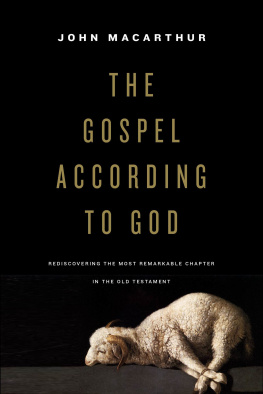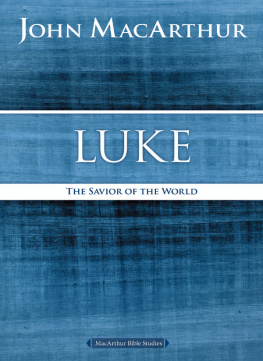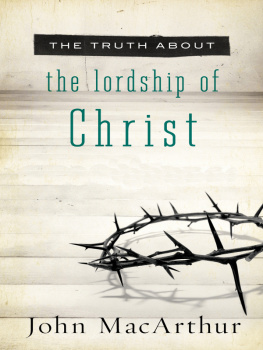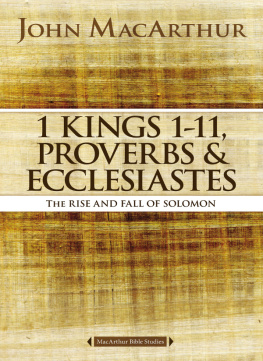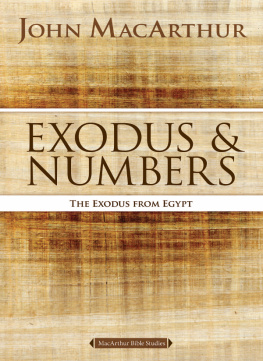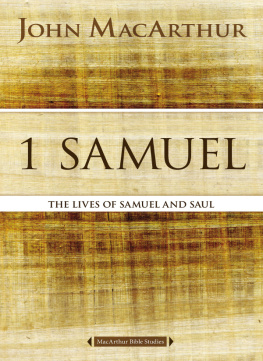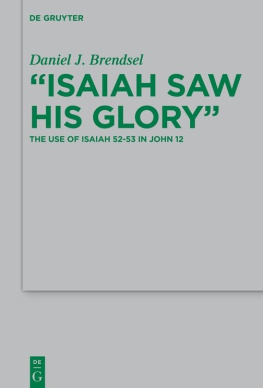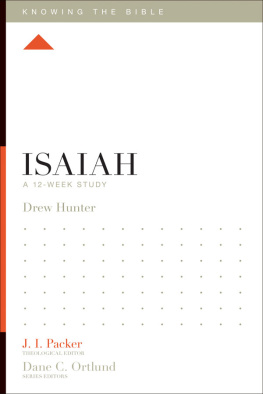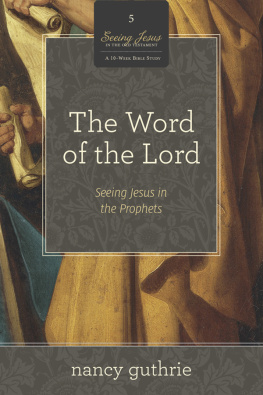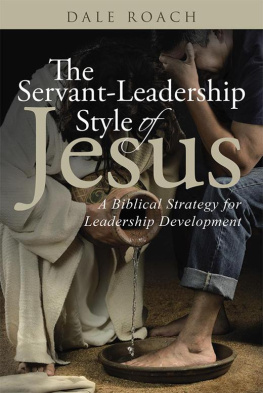Thank you for downloading this Crossway book.
Sign-up for the Crossway Newsletter for updates on special offers, new resources, and exciting global ministry initiatives:
Crossway Newsletter
Or, if you prefer, we would love to connect with you online:
Every unprejudiced person might have seen from this passage that the Messiah, when he came, was not to be surrounded with pomp, but would come as a man of sorrows, and acquainted with grief, to be despised and rejected of men. Yet, though the truth was written as with a sunbeam, and the Jewish people were pretty generally acquainted with their own Scriptures, so that they had the opportunity of knowing it, yet when the Messiah came unto his own, his own received him not, and though favoured with the clearest prophecies concerning him they rejected his claims, and cried, Let him be crucified!
If messianic expectation was so high when Jesus came, why was he rejected by the vast majority of Jewish people? Did Israel not understand? (Rom. 10:19). His own people did not receive him (John 1:11). Does that in any way discredit the claim that Jesus is the true Messiah?
Not at all. Isaiah clearly prophesied that the suffering servant of Y ahweh would be met with unbelief and rejection. From the opening verses of Isaiah 53 the point is made clear, repeatedly: Who has believed what he has heard from us?... He had no form or majesty that we should look at him, and no beauty that we should desire him. He was despised and rejected by men.... He was despised, and we esteemed him not (vv. 13). The rejection of the Messiah is one of the major features of Isaiah 53.
Saul of Tarsus was himself a Jewish scholar who once rejected the claims of Jesus Christ and hated Christianity with such extreme malice that he not only locked up many of the saints in prison after receiving authority from the chief priests, but when they were put to death [he] cast [his] vote against them (Acts 26:10). He basically oversaw the earliest attempts by the leading Jewish authorities to eradicate Christianity. But then he himself was miraculously converted, called by the risen Christ to serve, and appointed to be an apostle. He ultimately planted churches in Gentile regions from Antioch to Rome.
Occasionally someone will suggest that Paul ministered among the Gentiles because his own conversion caused him to develop a kind of self - loathing for his own ethnicity. But Paul was clearly no anti -Semite. He said his hearts desire and constant prayer to God for his brethren was that they might grasp the truth of Christ and be saved (Rom. 10:1). He even said he would accept being damned if that could be the means of saving his Jewish brethren: I could wish that I myself were accursed and cut off from Christ for the sake of my brothers, my kinsmen according to the flesh. They are Israelites, and to them belong the adoption, the glory, the covenants, the giving of the law, the worship, and the promises (Rom. 9:34 ).
Pondering the unbelief of so many people who knew the Old Testament promises and had every reason to embrace Jesus as Messiah but rejected him anyway, Paul pointed to Isaiah 53 to make the point that Israels unbelief was foretold by the prophets right alongside the messianic prophecies. He wrote, They have not all obeyed the gospel. For Isaiah says, Lord, who has believed what he has heard from us? (Rom. 10:16).
The verse he was quoting is Isaiah 53:1.
They Have Not All Obeyed the Gospel
The Old Testament messianic prophecies fulfilled by Jesus are amazingly detailed and specific. We listed many of those prophecies in chapter 1. Here it might be helpful to examine some of them carefully in context, because they often appear unexpectedly, in places where readers might not be looking for them. Collectively, however, they give too many specific details about the coming Messiah to brush aside his true identity as indefinite or ambiguous.
Micah 5:2, for example, is the verse that predicts where Messiah would be born: But you, O Bethlehem Ephrathah, who are too little to be among the clans of Judah, from you shall come forth for me one who is to be ruler in Israel, whose coming forth is from of old, from ancient days. The verse appears in a context where Micah is speaking a prophecy against Zedekiah, whom Nebuchadnezzar had illegitimately appointed as vassal king over Judah. But Zedekiah tried to rebel, so Nebuchadnezzar gouged his eyes out (2 Kings 25:17 ).
In chapter 10 we will survey the succession of kings who ruled Judah after the death of Isaiah until the Babylonian captivity. Zedekiah fits into that era. But a little background on him here is necessary to understand the historical references in Micah 5:12.
Though he was not directly in the line of succession, Zedekiah was the last person to sit on the throne of David. His reign ended when Nebuchadnezzar lost patience with him, leveled Jerusalem, blinded Zedekiah, and carried him to Babylon, where he died (Ezek. 12:13). Micah 5:1 refers to Nebuchadnezzars assault on Jerusalem: Now muster your troops, O daughter of troops; siege is laid against us; with a rod they strike the judge of Israel on the cheek. The daughter of troops refers to the band of soldiers from the Chaldean army sent by Nebuchadnezzar to punish Zedekiah. Zedekiah is mentioned in verse 1 as the judge of Israel. The rod that smites his cheek is the instrument used to put his eyes out.
Verse 2 is then addressed to the town of Bethlehem. Since no king ever took the throne of David after Zedekiah was deposed, the promise in verse 2 was given to assure the Israelites that their true ruler, the rightful heir to Davids throne, would nevertheless come forth. The messianic implications of that prophecy were obvious even in Old Testament times. But like most of the Old Testaments messianic promises, Micah 5:2 would have been somewhat mysterious until it was finally fulfilled. Micah gives no clue about when or how Messiah would come, but he is very specific about where the promised ruler would come from.
Proof that people before the time of Christ clearly understood the messianic significance of Micah 5:2 is seen in the fact that when Magi from the east came seeking the newborn king in Herods time, the chief priests and scribes cited this text without hesitation, and they directed the wise men to Bethlehem.
Various Old Testament prophecies about the messianic deliverer were full of specific details that fit Jesus precisely. They are scattered here and there across the entire Old Testament. In the earliest chapters of Genesis, for example, Adam and Eve were promised that the one who would ultimately defeat Satan and overthrow the curse of sin would be a man, the offspring of the woman (Gen. 3:15). He would be a descendant of Abraham (Gal. 3:16). He would come from the tribe of Judah (Gen. 49:10) in the bloodline of David (Jer. 23:56; Rom. 1:3).
There were also clues along the way that Messiah would be more than merely a man. He would be God incarnate. Theres a hint of his deity even in Micah 5:2, for example: [His] coming forth is from of old, from ancient days . The King James Version quite properly translates it as from of old, from everlasting. The Hebrew expression means from eternity past, so the one who comes forth from Bethlehem, who is to be ruler in Israel, would be someone who did not have his origins in the human realm; he existed before the beginning of time.
Next page
